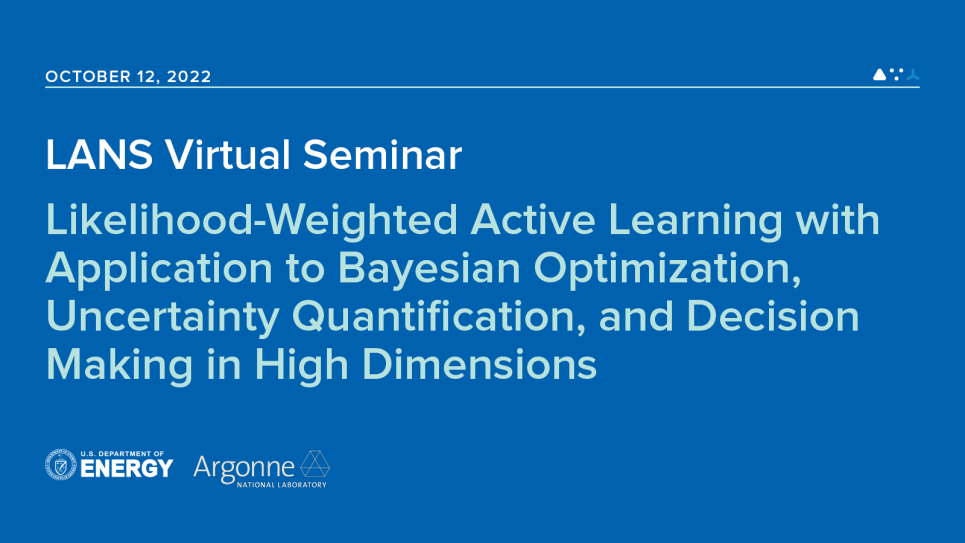
Likelihood-Weighted Active Learning with Application to Bayesian Optimization, Uncertainty Quantification, and Decision Making in High Dimensions
Analysis of physical and engineering systems is characterized by unique computational challenges associated with high dimensionality of parameter spaces, large cost of simulations or experiments, as well as existence of uncertainty. For a wide range of these problems the goal is to either quantify uncertainty and compute risk for critical events, optimize parameters or control strategies, and/or making decisions. Bayesian active learning provides a flexible framework for performing these tasks. However, Bayesian calculations are often prohibitively expensive in terms of the required simulations or experiments, even in the active learning setting.
In this talk we introduce a new class of acquisition functions that utilize a likelihood-weighted ratio that accounts for the importance of the output relative to the input. This ratio acts essentially as a probabilistic sampling weight and guides the sampling algorithm towards regions of the input space where the objective function assumes abnormal values, resulting in significant savings of computational or experimental resources needed for convergence. We show that the adopted acquisition functions can be rigorously derived as the asymptotic limit of an optimal acquisition function that has a minimax form over a functional space. Subsequently, we demonstrate their favorable properties compared to standard methods on benchmark functions commonly used in the optimization community as well as real world applications involving turbulence, fluid-structure interaction problems and optimal sensor placement.
See all upcoming talks at http://wordpress.cels.anl.gov/lans-seminars/